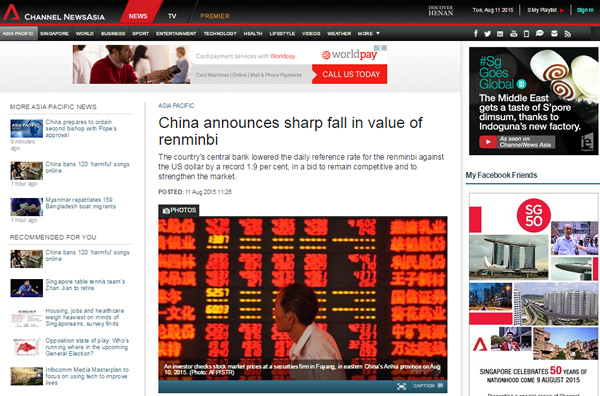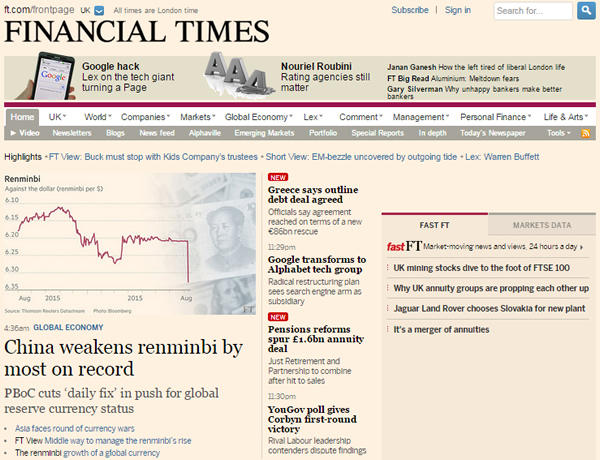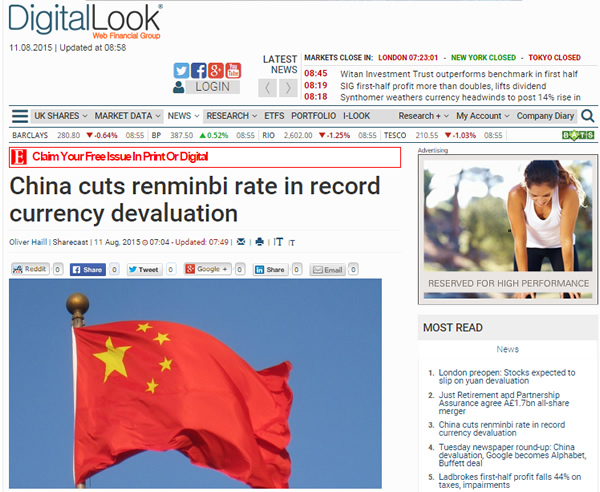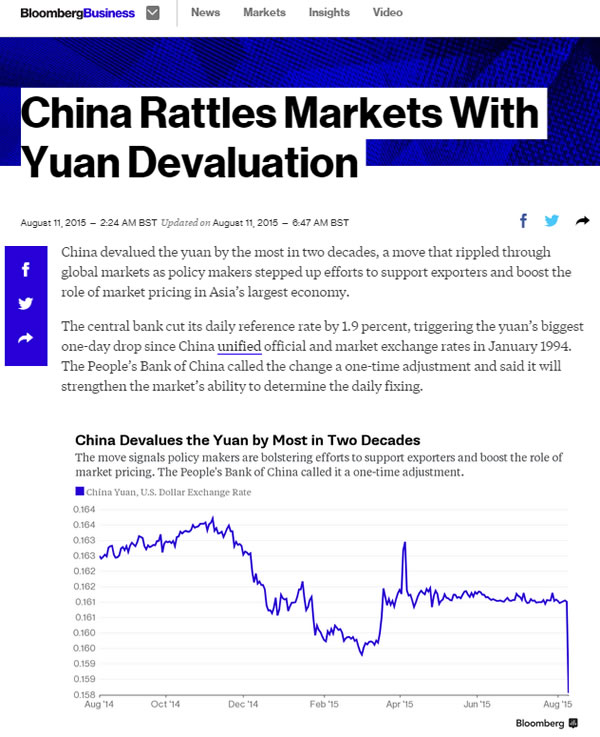CHINA. Travel retail executives are weighing up the impact of the Chinese government’s surprise overnight record weakening of the Renminbi.
In a note Nomura International Retail and Luxury Goods Specialist Sales Analyst Alix Turner said that the devaluation would be a negative for the luxury sector [and by implication travel retail] given that this would discourage the Chinese consumer from spending overseas (as a weaker Renminbi would reverse recent trends).
The People’s Bank of China lowered the currency’s daily link to the US Dollar by -1.86% to 6.2298 in an effort to remain competitive and to boost the market. The Renminbi quickly fell to a near three-year low against the US Dollar, posting its biggest one-day drop since China unified official and market exchange rates in January 1994. It also eased against leading Asia Pacific currencies.
From a travel retail perspective the revaluation will impact any market that attracts Chinese travellers. In Europe, for example, the Chinese currency has gained sharply against the Euro in recent months, enhancing Chinese spending power. A leading Korean travel retailer told The Moodie Report: “In the short term the impact will be minor because the Korean Won has been so weak recently against both the US Dollar and the Renminbi.”
 |
(Above and below) The devaluation of the Renminbi is the main talking point of the world’s leading business and financial titles |
 |
Each morning the state-owned Chinese bank fixes the currency at a certain point and allows the Renminbi to fluctuate up to two percentage points in either direction from the mid-point. Typically its adjustments are incremental, the FT pointed out in a commentary on the change. This latest move is very different.
China is also seeking to reform its Renminbi policy with the aim of being included in the International Monetary Fund’s basket of “˜Special Drawing Rights’ (SDR) reserve currencies.
Nomura International’s Turner said: “The -1.9% devaluation of the Chinese RMB overnight has surprised markets and caused the US$ to appreciate vs Asian currencies. Our strategists believe there could be further devaluation to come, with the currency anywhere between 3% and 13% overvalued (depending on the metric.”
Turner also noted that the translational impact from a much weaker RMB would impact luxury companies’ profit and loss accounts negatively. He continued: “With recent prices cut in Asia, we may have a scenario where Asia becomes cheaper than Europe and reverse recent work to have a more aligned pricing structure,” he commented.
 |
How much will overseas purchasing by Chinese be impacted by a weaker Renminbi? |
 |
 |




